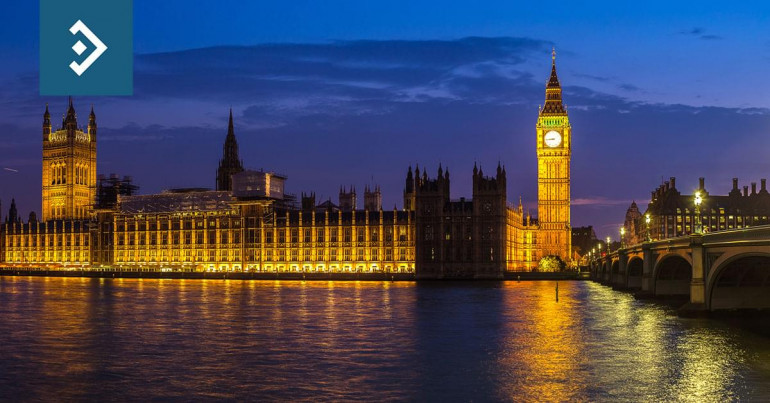
No money for levelling up
Morning mid-market rates – The majors
8th June: Highlights
- Johnson promises to refocus
- Will we ever see rates this low again?
- Economy suffering but not quickly as previously expected
GBP – North and south suffering equally
One of the pillars of the Conservative victory at the General election was the commitment to levelling up. This was the main reason why the red wall, the area of traditional socialist voters from the formerly industrial wasteland in the North of England where Johnson made massive inroads based on the promise that investment would from south to north providing new infrastructure, transport links, and most importantly, employment.
Now, having gone through Brexit and the Pandemic, the Treasury is struggling to find the funds to make good on those promises. While reasons for the Government being behind on several of its pledges are easy to find, the electorate is prone to ignoring excuses when it comes to their vote in an election and ask what did changing my vote actually done for me?
There is an idealistic value to switching a vote from Labour to Conservative that harks back to the Thatcher years. The parents of those young voters who paved the way for Jonson to return to Downing Street would have been horrified that their children voted for the bosses Party.
This change may be short-lived unless Johnson can conjure up a miracle before 23rd January 2025. This Government has been characterised by scandal when it had the size of majority that only comes once in a generation. Instead of using that for good, Senior Members of the Government, Johnson included, have taken advantage of the inability of the opposition to affect policy decisions.
It is now vital that the Cabinet gets a grip on itself and works to implement the policies that made it so popular in December 2019. For example, investment in the health service is well behind target, with so far only around 25k new nurses being recruited versus a target of 50k.
The same is true of law and order. Home secretary Priti Patel has spent an inordinate amount of time working to send refugees to Rwanda, and is now 50% below her target for recruitment of more police officers.
The economy is in serious trouble, with the threat of stagflation looming. Inflation continues to increase, the price of a litre of fuel at the forecourt is now closing in on £2.00, while output in the dominant services sector is about to fall into contraction.
The next Bank of England meeting, due to take place a week tomorrow, will be crucial to the path the economy takes over the next two quarters. There is a possibility that Q2 GDP may see a contraction, but is not, then quarters three and four may confirm the arrival of a recession.
The market appears to have entered a summer lull a little early but with central bank meetings coming up which represent almost the entire G7 it is expected that currencies will either push on within their current trends or new paths will be forged.
Yesterday, Sterling tested the bottom of its most recent range, but bounced back strongly.
It fell to a low of 1.2430, but recovered to close at 1.2590.
Considering your next transfer? Log in to compare live quotes today.
USD – There may be a single quarter of contraction but not two
The same is not yet true of consumers. They have been hit hard so far this year to the extent that both confidence and retail sales have suffered. They have also seen mortgage rates and rental costs increase, which has led to a slowdown in both housing starts and existing home sales.
There was a surprise admission from Treasury Secretary Janet Yellen last week, in which she admitted that she kept out of the discussion on inflation that began last summer, due to the fact that she didn’t fully understand the dynamics of the issue. This created a belief that inflation was indeed transitory, as it was described by Fed Chairman Jerome Powell.
In testimony yesterday, she admitted that Powell could have used a better word than transitory to describe the rise in inflation, but she remains hopeful that it will soon begin to fall. She agrees with the Fed. that bringing inflation back to target should be the number one priority not just for the Fed or the Treasury but for the entire Administration
Powell continues to lead a charmed life, only taking a minimum of flak regarding inflation, and having an approval rating that allows him the time to get it right.
The same cannot be said of the President, who is already shouldering the responsibility for what is already expected to be a rout for the Democrats in the midterm elections that will take place in November.
There is little doubt that a significant portion of the criticism of President Biden in the media can be laid at the door of former President Trump, who is marshalling and funding a Republican push into the midterms as a platform for an election campaign in 2024.
With there being little in the way of economic data due for release and next week’s meeting of the FOMC being considered a foregone conclusion, there is little to increase volatility for the dollar.
Yesterday, the index fell marginally but ended virtually unchanged on the day at 102.34.
EUR – The Eurozone’s members want equality for all
Tomorrow’s meeting of the rate setting Governing Council of the European Central bank will begin to discuss a hike in interest rates at its July meeting, or possibly before, as well as the magnitude of any hike.
There is a further and no less interesting topic that is being raised for discussion, and that is what is being described as the fragmentation of interest rates.
Several members of the Eurozone are fearful that their borrowing costs are going to soar once the Central Bank fully withdraws the support that it has been providing over the past few years.
The benefit of being members of the Eurozone is lost if countries with lower ratings than others are unable to access funds at market rates.
That is where something for nothing comes in. Those countries, say Italy, desire the ability to borrow at the same rate as countries, say Germany, yet still manage their economies in a less disciplined manner.
While it is almost certain that the Frugal Five will accede to basically guaranteeing the bonds issued by lesser rates countries, the whole issue marks the start of another significant issue for the region.
It will cost countries a great deal to just cover the interest cost of bond issuance, while endeavouring to bring down their budget deficits.
There is no doubt that the ECB will be expected to support a new, more disciplined approach as the normalization of interest rates takes place.
It could be that another financial crisis is on the horizon as weaker economies are forced to choose between supporting their people and complying with rules seemingly designed to punish them further.
It is certain that were the choice be forced upon these nations that there will be consideration given to leaving the Union.
The euro is not the only currency to be expected to feel the effect of a widening of the differential between monetary policy within the G7, but it is the most likely candidate to begin to lose ground.
Yesterday, it fell initially in the day, but managed to return to its closing level from the previous day. It closed at 1.0702, a gain of just seven pips.

About Alan Hill
Alan has been involved in the FX market for more than 25 years and brings a wealth of experience to his content. His knowledge has been gained while trading through some of the most volatile periods of recent history. His commentary relies on an understanding of past events and how they will affect future market performance.”



